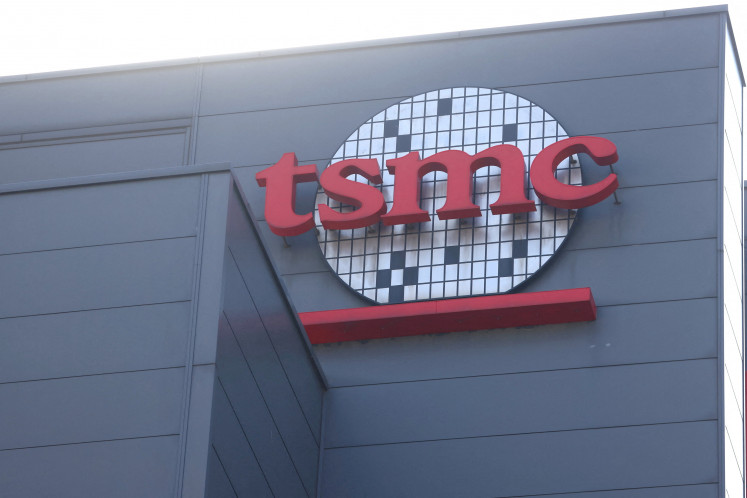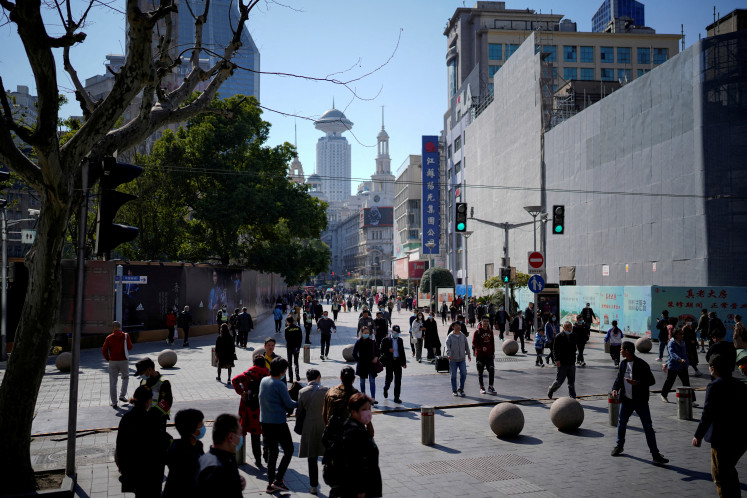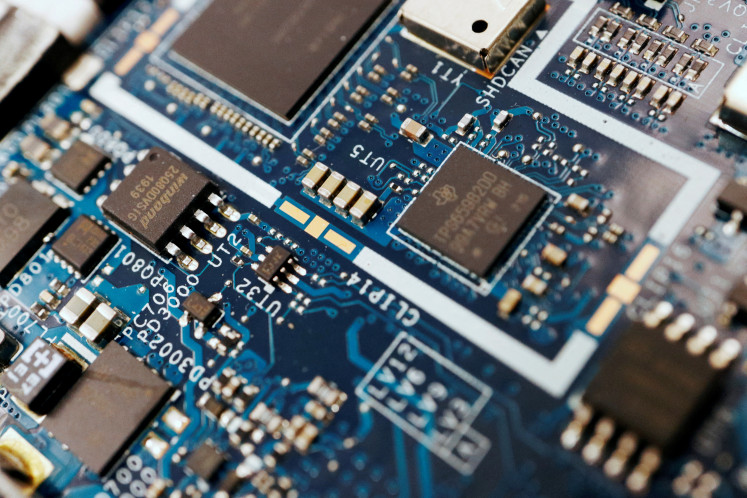China inflation slowed in February as food prices eased
The producer price index rose 8.8 percent on-year, the slowest rate since June last year.
Change Size
 A customer purchases cured meat at a food exhibition in Shanghai, China, on Jan. 26, 2019.
(Bloomberg/Qilai Shen)
A customer purchases cured meat at a food exhibition in Shanghai, China, on Jan. 26, 2019.
(Bloomberg/Qilai Shen)
C
hina's factory-gate inflation eased to its slowest pace in eight months in February as consumer price growth also softened, data showed Wednesday, after new coronavirus curbs and a drop in food prices.
The producer price index (PPI), which measures the cost of goods at the factory gate, rose 8.8 percent on-year, the slowest rate since June last year, according to the National Bureau of Statistics (NBS), tracking a fall in coal prices.
It was above the 8.6 percent forecast in a Bloomberg survey of economists, but below the 9.5 percent in January.
The rise in producer prices last month had been "affected by increased commodity prices globally such as crude oil and non-ferrous metals," NBS senior statistician Dong Lijuan said in a statement.
The consumer price index (CPI), a key gauge of retail inflation, rose 0.9 percent on-year in February, the same level as in January.
A steady fall in food prices -- especially a 42 percent drop in the price of the staple meat pork compared to the previous year -- has helped ease inflation worries.
But disruptions to the global food supply due to Russia's military operation in Ukraine are expected to affect prices in China, which relies on barley, sunflower oil, and corn imports from Ukraine, said Julian Evans-Pritchard, an analyst at Capital Economics.
China's leaders Saturday set a target of 5.5 percent gross domestic product (GDP) growth this year -- the lowest annual goal since 1991 -- with Premier Li Keqiang warning of a "grave and uncertain" outlook as the war in Ukraine threatens to damage global supply chains.
Analysts said cooling inflation could prompt the People's Bank of China to provide more policy support to bolster the economy.
Rising production costs and low consumer prices are squeezing profits, said Zhiwei Zhang, chief economist at Pinpoint Asset Management.
"The challenge for Chinese firms will rise if high commodity prices... persist into the second quarter," he said.










